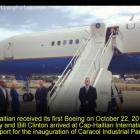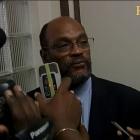ADVERTISEMENT
Presidential palace of President Villbrum Guilluiame Sam who was assassinated
Presidential palace of President Villbrum Guilluiame Sam who was assassinated
At the beginning of the 20th century, United States became increasingly concerned with the level of German activity and influence in Haiti. German businesses in Haiti dominated commerce in the entire area.
German nationals controlled over 80 percent of Haiti international commerce. They owned utilities in Cap Haitien and Port-au-Prince, wharf, railroad serving the Plain of the Cul-de-Sac. To get around Haitian law that forbid foreigners from owning land in Haiti, German men were increasingly marrying Haitian women and open businesses.
Although the sphere of U.S influence in the Caribbean started in 1898, in 1915, during the First World War, the U.S President Woodrow Wilson feared that Germany could invade Haiti and establish a military base near the Panama Canal that was built with huge U.S investment. The U.S President had right reasons to worry because then there were many Germans settlers living in Haiti who had financed the rampaging cacos with loans which were almost impossible to be repaid and they were at the mercy of the Germans to invade and restore order.
Read more about haiti national palace, business, marines, commerce, panama, cacos, Railroad, US marines, US Occupation, Panama canal, Land Ownership, Germany, Villbrum Guilluiame Sam, German, wharf, Woodrow Wilson, International Relation

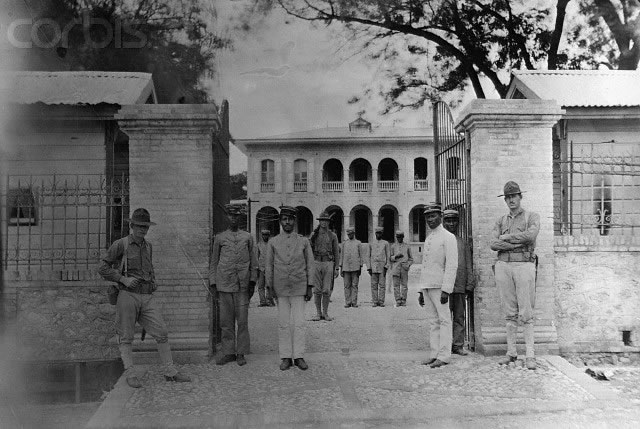
 Inauguration Lycée Jean-Louis Dulciné in Gris-Gris, Haiti
Inauguration Lycée Jean-Louis Dulciné in Gris-Gris, Haiti 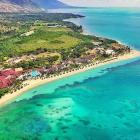 Royal Decameron Indigo and White sands
Royal Decameron Indigo and White sands  Gas Station In Haiti
Gas Station In Haiti 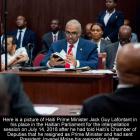 Jack Guy Lafontant resigns as Haiti Prime Minister
Jack Guy Lafontant resigns as Haiti Prime Minister 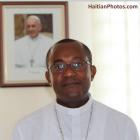 Pope Francis appointed Mgr. Launay Saturne Archbishop of...
Pope Francis appointed Mgr. Launay Saturne Archbishop of...  Jovenel Moïse nominated Jean Henry Céant as prime minister of...
Jovenel Moïse nominated Jean Henry Céant as prime minister of... 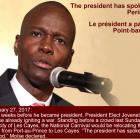 Jovenel Moise, the president has spoken. Period
Jovenel Moise, the president has spoken. Period  Commissioner Frantz Pierre indicted for accepting bribes
Commissioner Frantz Pierre indicted for accepting bribes 